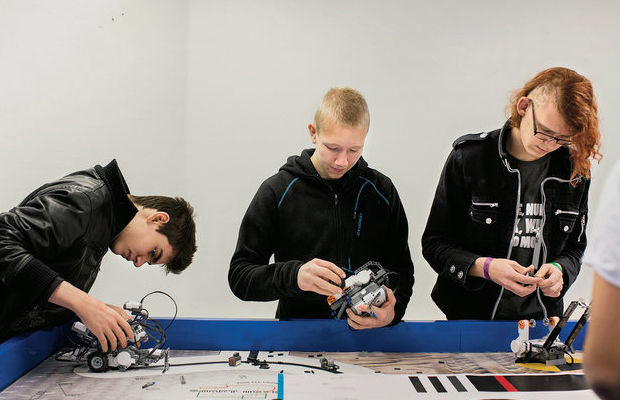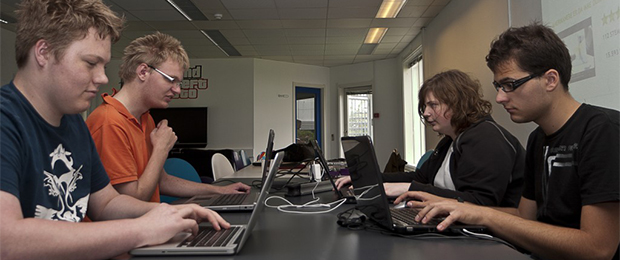Although it is increasingly common to find people with disabilities on company staffs, in positions of responsibility, there remain many who still cannot obtain paid work. However, a Danish company dedicated to software testing is unique in that 75% of its staff are autistic.
The company’s founder, Thorkil Sonne, first became interested in the integration of autistic people in the work force when his son Lars, at just 3 years of age, was diagnosed with Asperger’s Syndrome. Sonne and his wife Annette understood the serious difficulties that their son would face due to this type of autism, which has a considerable effect on social relationships and interaction with the surrounding environment. Sonne discovered that only 6% of the autistic population is integrated into the work force, despite the surprising and peculiar skills that persons with autism can have. It’s a matter of finding a job that suits the skills of the autistic population to allow them to be integrated into the job market.
In time, they discovered that, like their son Lars, persons with autism have unparalleled photographic memories and amazing attention to detail in task execution. On one occasion, at the age of 7 after a car trip from Scotland to Germany, Sonne’s child was able to accurately sketch Europe on a piece of paper, with rectangles and numbers in each country, based on a road map that kept him entertained during the trip. His parents were surprised to see that Lars had accurately memorised the table of contents representing the map of the continent, with each of the page numbers shown on the boxes of the various countries.
After these experiences, Sonne found out that these skills, and their careful execution, were exactly the qualities sought for some employees in the largest telecommunications company in Denmark, where he worked as a technical director. After comparing Lars’s skills with the experiences of other families he met as a volunteer in an organization for families of people with Asperger’s Syndrome, he decided to start a business dedicated to the integration of persons with autism and foster their outstanding skills.

Thus, in 2003 he started the company Specialisterne –Danish for “the specialists”– with a business plan that brought together the characteristics of an ideal software tester and the skills of autistic people, such as a good memory, persistence, methodical adherence to the instructions for the activity being performed and detecting any deviation from expected results, among others. These skills, appropriate to specific tasks such as data input or software testing, are precisely the main characteristics of autism.
After almost a decade true to its philosophy of contributing to the integration of people with autism, the company has a staff of about 50, 35 of whom are autistic people in positions of responsibility, such as consultants advising 19 companies in Denmark. In this sense, Ernie Dianastasis, general manager of an information technology company that has agreed to work with Specialisterne to find jobs as software testers for people with autism in the United States, praises and values the work carried out by Thorkil Sonne and his company: “He has helped me see things differently; these people can form part of our business and our plans”.
Similarly, Specialisterne has inspired the foundation of another five companies in the world with the same philosophy. Among Thorkil Sonne’s short-term plans is moving to the United States, where there are a significant number of people with autism and the country’s technology sector is a potential business niche for the growth of Specialisterne.
[youtube]http://www.youtube.com/watch?feature=player_embedded&v=M7GtMSlosL8[/youtube]
Experience has shown over the years that Asperger’s Syndrome researchers underestimated the intelligence of people with autism. A paper published in 2007 by a group of Canadian scientists showed that the results of intelligence scales varied greatly depending on the specific test administered. The scale historically administered in the study of autism, the Wechsler scale, provided results in which one third of the children studied fell within the predefined range of intellectual disability. Raven’s Progressive Matrices test, however, which does not base its diagnosis on language skills, returned results in which most children tested with the Wechsler scale were above average and one third obtained high IQ results.
In 2009, a study by scientists from King’s College London concluded that about one third of autistic males have ‘some type of exceptional skill’, such as detecting inappreciable details, differentiating sounds or having innate spatial skills for imagining complex three-dimensional structures and working with them mentally.
Images | via Specialisterne









